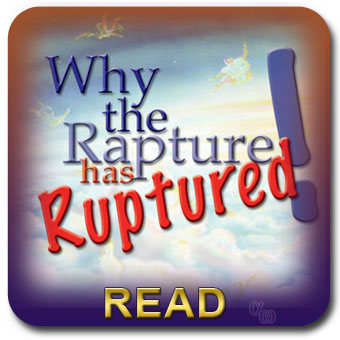
by Andrew Corbett | May 4, 2016 | Bible Prophecy |
Many believers have come to believe in a ‘rapture’ and that it is prophesied in the Bible without realising that it is only a fairly recent idea! When we look at the teaching of some of these Bible-Prophecy preachers it soon becomes apparent that the Bible does not teach a rapture!
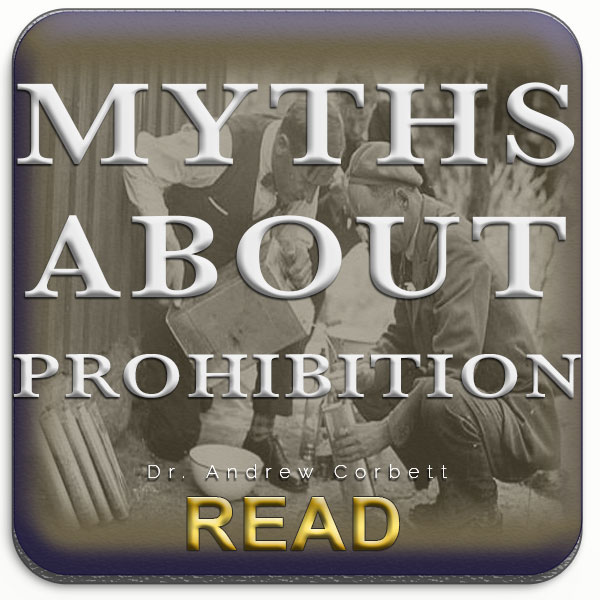
by Andrew Corbett | May 2, 2016 | Ethics
It is wrong to confuse religious obligations with moral obligations. But this is what some Christians have done when they have protested about other Christians striving to maintain and uphold moral standards in society. They have confused religion with morality thinking that these Christians were trying to impose religious obligations upon society. When Christians protest attempts to promote immorality they are not being religious – they are being caring! If Christians wanted to legislate compulsory baptisms – that would be seeking to legislate religion on society, but not when they protest abortion, sexual deviancy or the sanctity of marriage!

by Andrew Corbett | Feb 27, 2016 | Theology, Topical |
How should Christians regard the Fourth Commandment of the Ten Commandments — about the Sabbath?

by Andrew Corbett | Feb 22, 2016 | Book of Revelation |
At the start of every new year there are always hopeful believers who claim that this is the year that Christ will come back. Some of these believers move beyond hope and practice unhelpful distortion of Scriptures to arrive at their wild guesses. Is there are genuine Biblical basis for believing that this will be year that the Lord will come back?

by Andrew Corbett | Feb 22, 2016 | Bible Prophecy |
“It was the best of times, it was the worst of times.” begins the Dickens’ classic, The Tale of Two Cities. For many End-Times preachers, these are the worst of times. This idea is reinforced repeatedly by many Christians who feel that the world is indeed getting worse and worse. When I have lectured on Ethics or Eschatology both here and abroad, I have been challenged by students who despair that Christians can not hope to have a godly influence on society since the Bible apparently says that the last days will be dark and full of rampant evil. I have generally responded to these claims by asking if there was another time in history in which they would rather have lived? When students think about it, they usually conclude that there is no better time to be alive than now. But this presents a dilemma for those Christians who have bought into the idea that these are the “worst of times”, because the evidence suggests that these are the best of times.
I’m a Preterist. I’m not a Futurist. This means that I consider the Bible needs to read and understood as it was intended. I consider this to be taking the Bible “literally”. This kind of literalism distinguishs between a metaphor, an allegory, poetic parallelism, narrative, and didactic prescriptions. I therefore regard Christ’s statements about His coming and the Kingdom of God being “near” and “at hand” as being intended to convey the idea that His coming and the Kingdom of God on earth was about to commence within the life-time of Christ’s original audience.
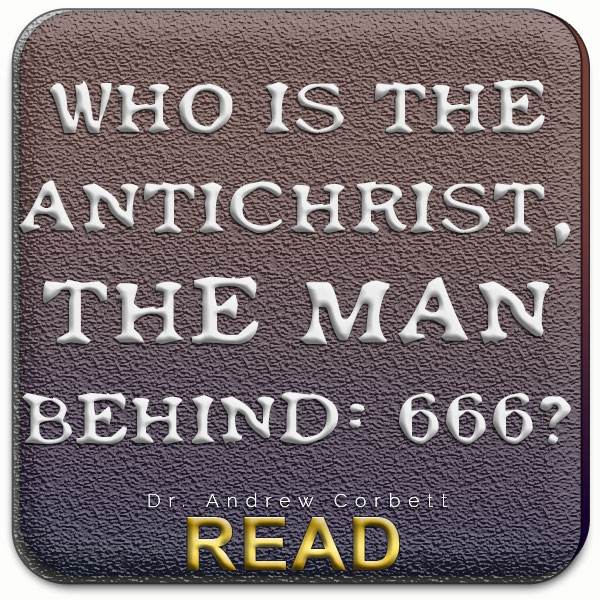
by Andrew Corbett | Oct 5, 2015 | Bible Prophecy, Eschatology |
Who is the man identified in The Book of Revelation with the number, “666”? This article sheds light on this controversial question. I grew up in a church where regular Bible-prophecy teachers hinted that they knew the identity of the coming ‘Antichrist’. This man, was, according to these teachers, also referred to in Scripture as “the Beast” and “the man of lawlessness”. It wasn’t until I started to realise that these teachers were not only guessing about this Antichrist, but pretty much everything else they taught was a guess as well, that I began to understand what the Bible really says about these things.
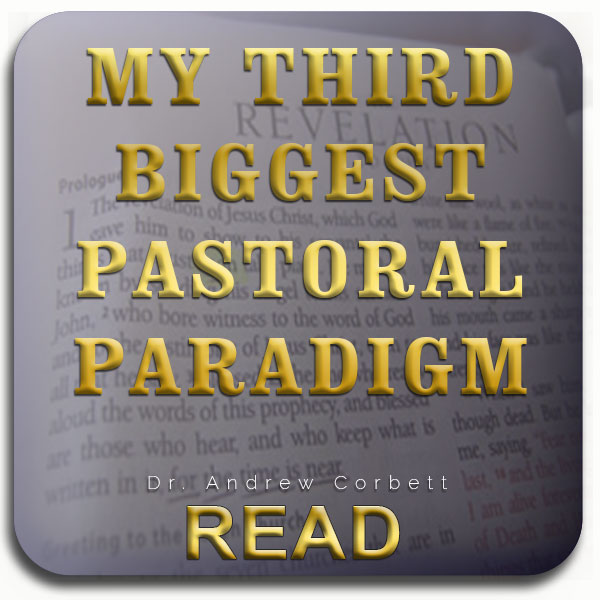
by Andrew Corbett | Sep 25, 2015 | Eschatology, Theology |
As I reflected on my recent 20th pastoral anniversary of Legana Christian Church in 2015, I’ve had cause to reflect on three of my most significant pastoral paradigm shifts. I think I was about 17 years of age when I approached my then pastor, Joseph Bowes, to talk about the growing sense of God’s call on my life to pastor. I had assumed that all young men about that age felt a similar call. Pastor Bowes informed me that this was not the case. It was around this time in the 1980s that I first met Pastor Trevor Chandler who had become an annual visitor to our Geelong church (as he came down from Queensland to Victoria for INTERMIN). But this time (the 1980s) was a bizarre time for Bible Prophecy pundits. It was Trevor Chandler who first sowed the seeds into my soul to investigate rather than blindly accept Dispensational Futurism (which was the predominant view in most Evangelical and Pentecostal churches at the time). And I did.

by Andrew Corbett | May 6, 2014 | Bible Prophecy, Eschatology |
The Bible’s Prophetic Program Culminates With “a new heaven and a new earth.” What might this mean? What are the implications of this? Does it have bearing on how we live today?
¶ Then I saw a new heaven and a new earth, for the first heaven and the first earth had passed away, and the sea was no more.
Revelation 21:1
But what does this mean? The implications of how we understand this Bible prophecy are slightly enormous. I was recently discussing with another pastor some issue of concern we shared about a potential environmental hazard. I ventured that we needed to take some action. He responded by expressing doubts that a pastor could achieve any change. Then he said, “…besides, this earth will soon pass away soon since the Bible says a ‘new earth’ is coming, so ultimately it doesn’t really matter!” How we understand what the Bible means when it refers to a ‘new heaven and a new earth’ may well determine how we treat our ‘existing’ earth and the type of legacy we will leave for generations to come.
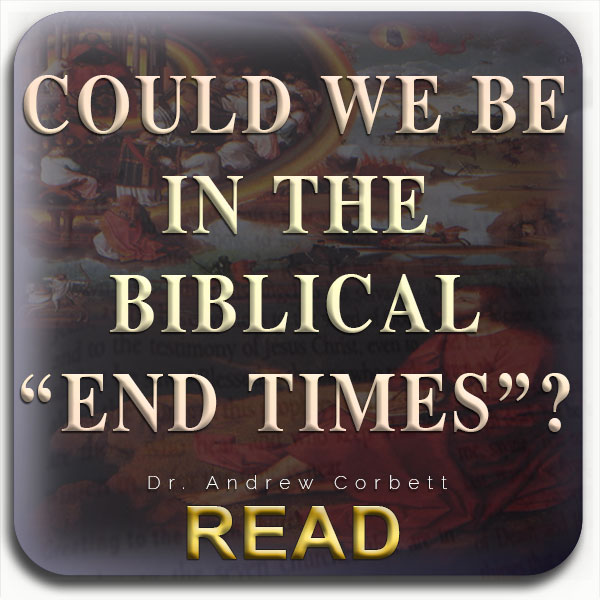
by Andrew Corbett | Apr 26, 2013 | Bible Prophecy, Book of Revelation, Eschatology |
Wars, earthquakes, floods, and famines have long been considered the traits of what many believe to be the Biblical description of the “end times”. Added to this is what many understand to be the predictions of increased apostasy, the rise in persecution, the deterioration of society’s morals, and the increased compromise and lukewarmness of the Church. And surely, if these are the characteristics of what the Bible describes as the last days, we must be in the last days, right? But are we? And if we are, so what? And if we aren’t, then what? But are we in what the Bible describes as the ‘end times’?
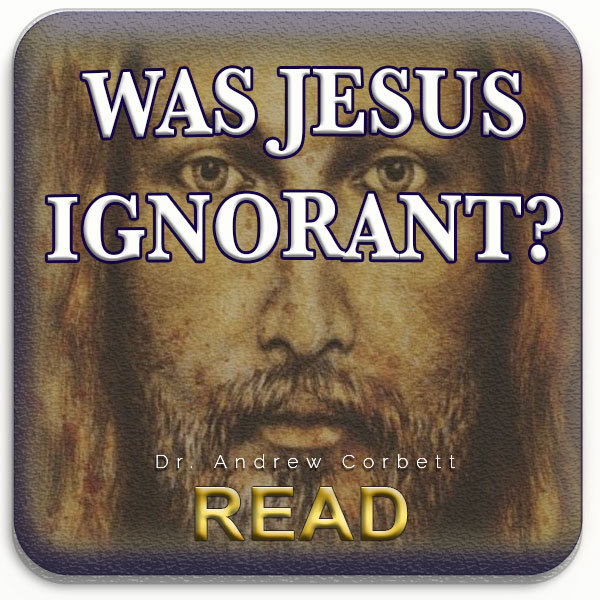
by Andrew Corbett | Dec 29, 2011 | Christology, Eschatology |
Take a Bible College Course on Jesus Christ (called “Christology”) and eventually you will study the incarnation of Christ and explore how His Divine and Human natures formed a union. The mystery of how God became man is further magnified when it is supposed that although Christ possessed all of the Divine attributes (immutability, eternality, omniscience, omnipresence, omnipotence) He was at times not utilizing His Divine nature and instead speaking from His limited Human nature. In this way, it is argued, Christ was actually ignorant of certain things. The most common proof-text to support this doctrine is Matthew 24:36.
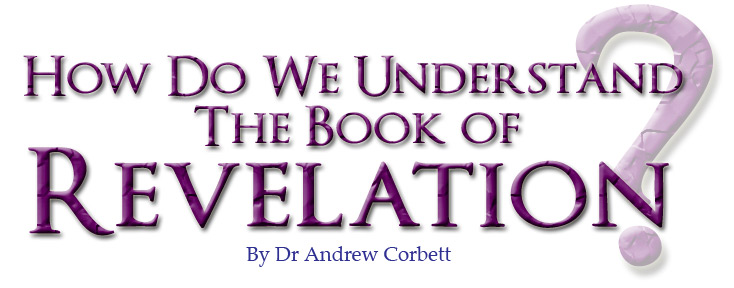
by Andrew Corbett | Feb 8, 2011 | Book of Revelation |
We all approach the Bible with certain ideas that color the way we read it. This is especially the case with the Book of Revelation. While certain parts of the Bible are difficult to understand (largely because we are separated by time, distance, language, personal disconnection and cultural practices), the Book of Revelation is particularly difficult to understand. This is borne out by the plethora of interpretations that have been offered about it.

by Andrew Corbett | Jun 19, 2010 | Bible Prophecy, Book of Revelation, Eschatology, Hermeneutics |
The dividing line between Classical Preterists and Full Preterists is how the Biblical references to the New Jerusalem are understood. Full Preterists, who argue that all of the Book of Revelation is fulfilled, contend that the New Jerusalem has already (spiritually) come ‘down’. Classical Preterists, who argue that only Revelation chapters 1-19 are fulfilled, on the other hand, contend that the expression New or Heavenly Jerusalem, while indeed alludes to the New Covenant, will one day have its full expression after the Second (Physical) Resurrection.
Full Preterists approach the Book of Revelation as if it is all fulfilled. Naturally then, the reference to the New Jerusalem coming down out of Heaven described in Revelation 21 is considered fulfilled.












